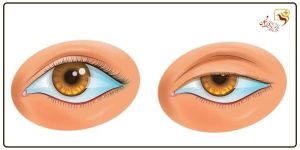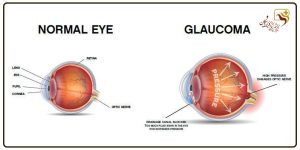بیمار نیکان عضوی از خانواده ماست

cataract
What is cataract?
It is a type of eye disease with various reasons, beginning with blurriness of the lens of the eye and as the lens becomes more blurry, the vision of the eye is disturbed. Fortunately, in most cases where cataract causes visual impairment, it can be treated with a delicate surgery.
Common causes of cataracts
- Old age (the most common cause);
- An impact that disrupts the nutrition of the lens;
- Ionizing rays, x-rays, gamma rays caused by old televisions;
- Prolonged exposure to sunlight or ultraviolet rays;
- Diabetes;
- Injury to the eye and lens;
- Congenital impairment;
- Malnutrition;
- Long-term use of some drugs such as corticosteroids.
Some common symptoms of cataract
- Diplopia;
- Blurred vision, usually happening in bright light. Usually, this state happens for the first time at night when seeing the lights of cars in the form of a halo;
- Pupils becoming blurry and milky white;
According to the researchers, using non-standard sunglasses damages the eyes more than not wearing them, being a reason for the occurrence of cataracts. Accordingly, dark sunglasses cause the pupils to open and if the glasses are not able to absorb UV rays, this rays will cause damage to the eyes more than when a person does not wear glasses.
Important post-cataract surgery points
- If you feel pain, use analgesic every 6 hours;
- Avoid bending for a long time or lifting heavy objects for a week after surgery;
- Avoid hitting the eyes by using glasses or protectors for two weeks after the surgery;
- Avoid rubbing or pressing the eyes;
- Avoid washing your eyes for 4 days (instead of ablution, use ablution with a clean stone);
- Bathing is allowed on the fifth day after the operation;
- To ensure complete healing of the wounds, use eye protection while sleeping to prevent damage to the eyes (unconscious rubbing of the eyes);
- When sleeping, sleep on your side or back, never sleep on your stomach;
- Do not put gauze or cotton under the eye protection;
- Use the drops in a timely fashion and shake them before each use;
- There is no need to wake up and pour drops while sleeping (from 12 at night to 6 in the morning);
- The patients are recommended to consume protein substances and fresh fruits containing vitamin C.
The correct use of eye drops
- It is better to have eye drops dripped into your eyes by another person;
- First, wash your hands with soap and water;
- Bend your head back a little;
- Pull your lower eyelid down to form a small cavity;
- Avoid touching the tip of the dropper with your hand or the edge of the eyelid;
- After instilling the drop, you had better close your eyes slowly for 2-3 minutes to make the medicine better absorbed;
- If you use more than one type of drop, use the second drop at least 5 minutes after the first drop.



